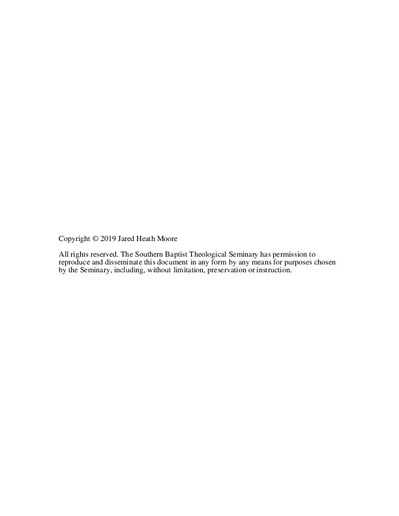| dc.description.abstract | This dissertation contends that same-sex attraction, since it is a form of concupiscence, is always sinful, morally culpable. Chapter 1 defines concupiscence and summarizes the historical and contemporary debate between Roman Catholics and the Reformed tradition, along with the current debate among the Reformed over whether to agree with Geneva or Rome. Chapter 2 argues that Augustine taught, for most of his Christian ministry, that concupiscence is morally culpable sin. Chapter 3 shows how Roman Catholics rejected Augustine’s teachings on concupiscence, while the Reformers and their theological descendants followed Augustine’s teachings on concupiscence, emphasizing that concupiscence is always morally culpable sin.
Chapter 4 demonstrates that some within the Reformed tradition today are rejecting the Reformed tradition’s teaching that concupiscence is always morally culpable sin and embracing a position closer to the Roman Catholic view. Then, chapter 5 shows that Genesis 3:6, Matthew 5:27-30, Romans 1:24-27, and James 1:13-15 teach that concupiscence is morally culpable sin, even in Christians. This chapter concludes with a pastoral application—if concupiscence is always morally culpable sin, then sinners can only be saved and Christians can only remain saved if the full righteousness of Christ is imputed to them.
Chapter 6 argues that since same-sex attraction is a form of concupiscence, morally culpable sin, it cannot be sublimated or re-ordered to holiness. Only God-designed attraction and God-designed desires can be turned to holiness. Finally, chapter 7 summarizes the thesis and arguments from previous chapters. It concludes by offering suggestions for further research and potential writing projects. | en_US |

